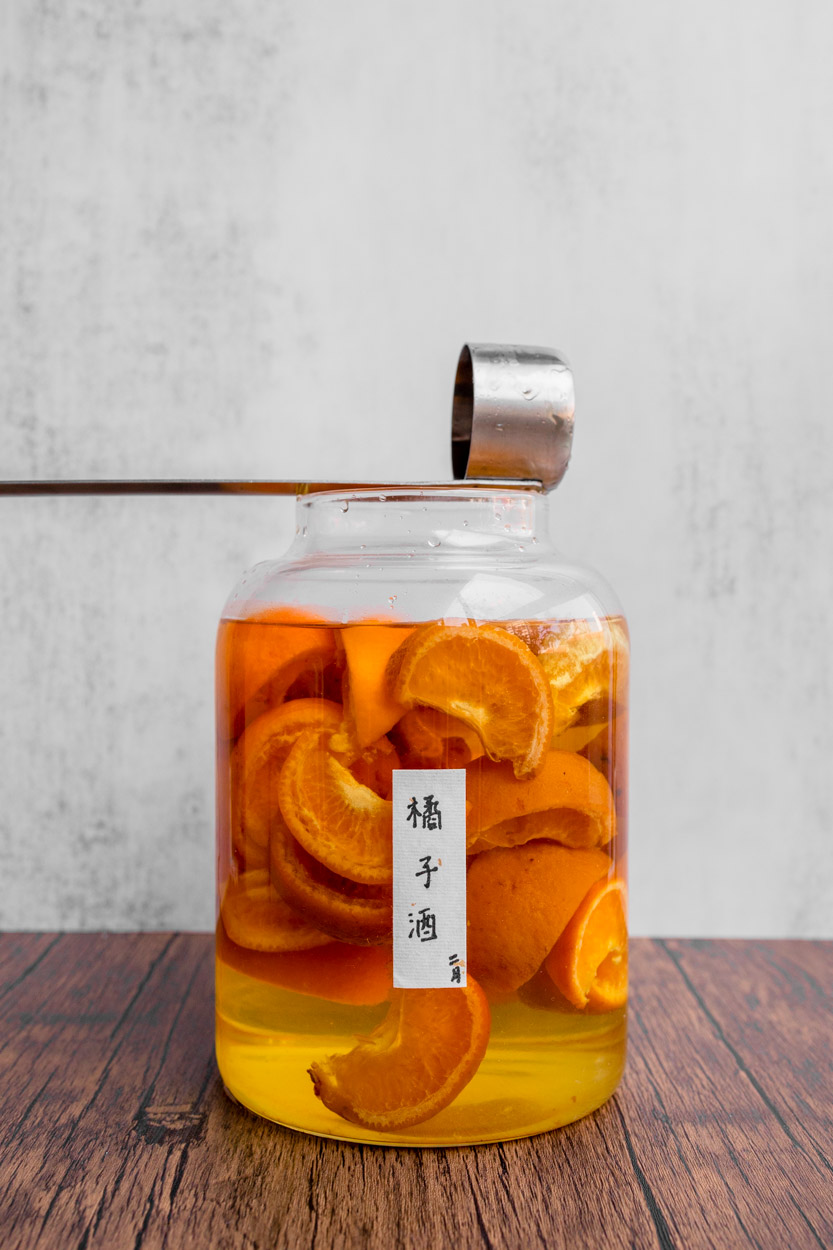
We are not professional cooks/chefs; we are two foodies who enjoy trying out recipes at home based on what we have eaten, seen, and are inspired by the world. When we are out of ideas on what to cook we read books and head over to the internet for inspiration. However, when it comes to Asian food, there are always fewer options. As our grandmothers passed away and our mother grew older, we attempted to recreate as many of their recipes as we could. Nonetheless, we like to learn more and share our experiences along the way. Thus in the past year, we are glad that there is this Chinese platform called Little Red Book, which is similar to a combination of Pinterest and Youtube, where you could find many kinds of Asian inspiration there. We get to interact with and learn from great creators. Watching short vlogs of bloggers who share their lifestyles is one of our favourite series.
The expert home cook’s kitchen is one of the aesthetics we admired; they all have a variety of jars on their shelves. That was common in Chinese and Japanese households, and both food cultures have had a strong influence on us. These jars, hold preserved food, homemade infused liquors, and more. This allows them to keep their food for longer, particularly seasonal ingredients. We decide to try these Mandarin Orange Infused Liquors because we have plenty left over from our Chinese New Year in early February.
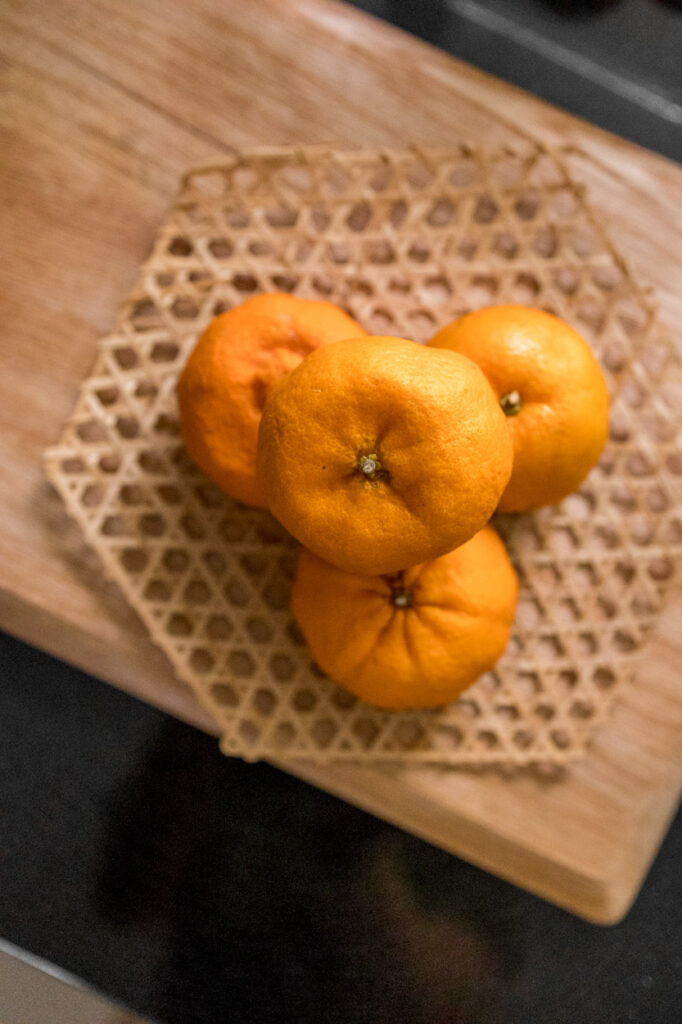


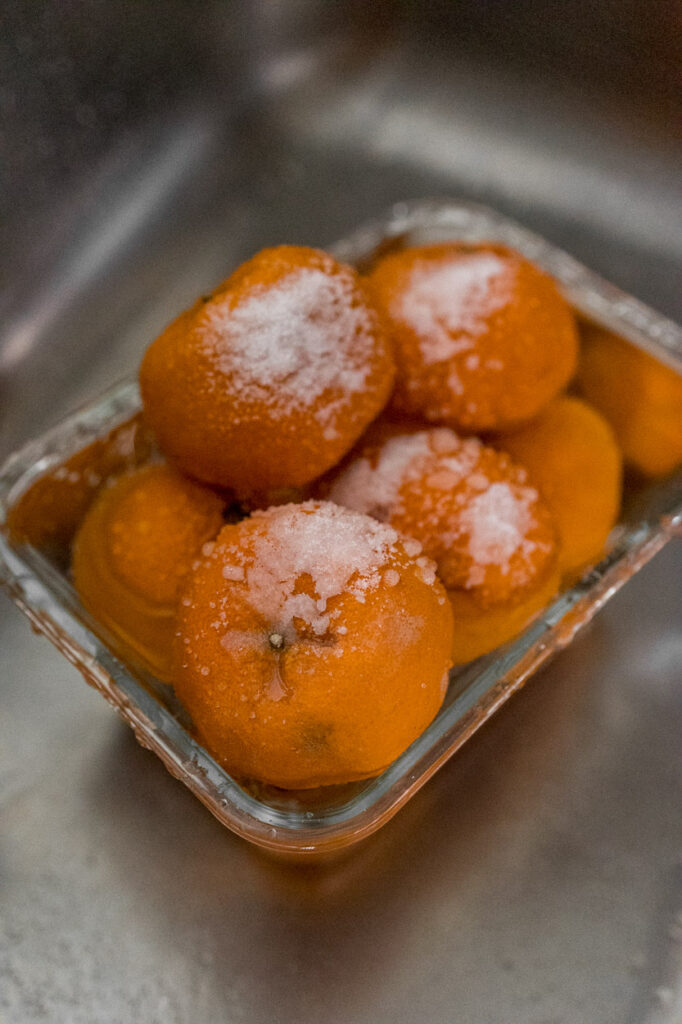





Getting the Right Ingredients
There are only 3 basic ingredients to make homemade fruit-based liquors, you will need your choice of fruits (this time we use mandarin orange), rock sugar and white or yellow alcohol with a high percentage level.
Fruits: Mandarin Orange / Orange
Orange has always been our favourite fruit as not that it could quench our thirst, it is also the perfect ingredient in our food – Mandarin Orange Lemonade with Mint, Brussels Sprouts with Oranges and Bacon, Homemade Orange Marmalade, and even Citrus Salad with Honey Vinaigrette. It is bright, refreshing and fragrant, the best option for the summer. By making the orange into infused liquors, we could have the best fruity cocktail for our summer party.
How to Prepare the Orange?
If you have once tasted the skin of an orange, you will know that it tasted bitter yet we don’t want bitterness to destroy the wine. However, the skin is the key to this homemade wine, as it is so fragrant compared to the flesh. Thus in order to reduce the bitterness, during the cleaning of oranges use plenty of salt to scrub the skin of the orange. 1) It will help to reduce the bitterness of the orange. 2) The salt act as a scrub to the orange to remove the dirt on it. Once you clean it well, let the orange dry as much as you can, before cutting them into wedges.
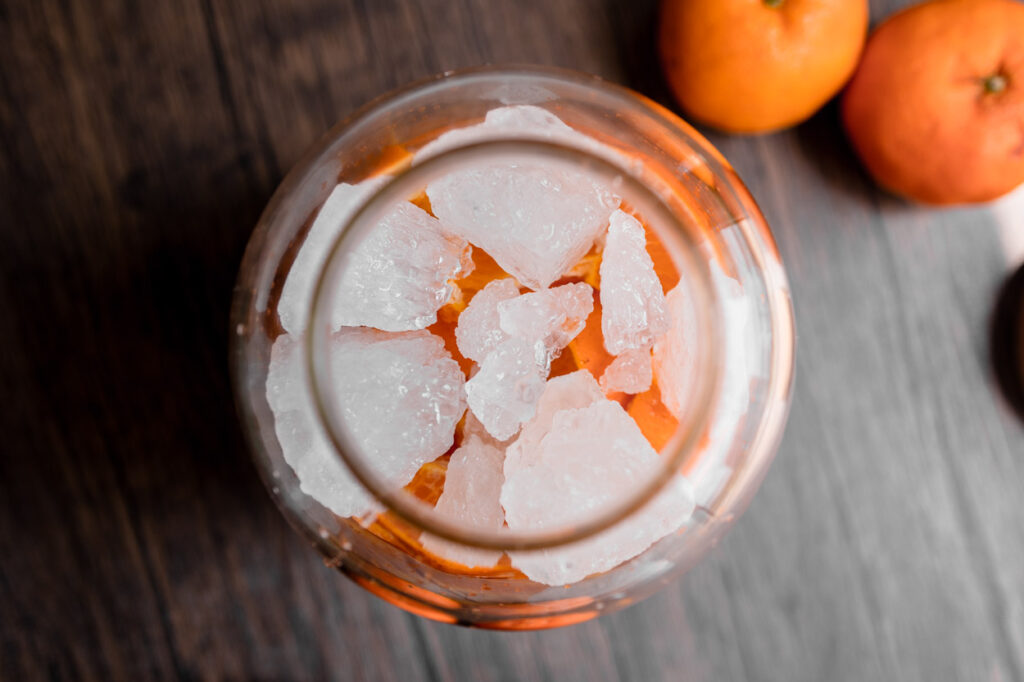
Sugar: Rock Sugar
Sugar plays an important role in homemade wine, when a mixture of sugar and wine is added to a jar, sugar can be used to encourage secondary fermentation of the liquors. Talking example in making red wine, the riper the grape, the more sugar in the fruit there is to convert to alcohol. Thus, winemakers sometimes add cane or beet sugar before fermentation is complete to boost alcohol levels when grapes are not as ripe as they would like. As sugar content in the dosage will determine the sweetness of the final product, thus for those who don’t like it to be too sweet can reduce the amount by 20%.
Some of the makers use white sugar, however, we prefer the sweet taste of rock sugar which taste more natural and sometimes like honey. Read more to find out how to choose the correct rock sugar.
Liquors: Shuang Jin Chiew (Asian Version of Volka)
Choosing your infusion is the first and most obvious step. The most common liquors, such as vodka, tequila, rum, whiskey, and gin, make great choices. Liquors that are more complex, like mezcal, are harder to work with.
We use Shuang Jin Chiew which is 100% fermented from rice, the Asian version of Volka. It features crystal texture, distinctive flavour of rice, rich taste as well as a long-lasting aroma. It’s essentially a blank canvas that can take on any flavour combination. Tequila and rum are easy to try, too, if you’re not a fan of Shuang Jin Chiew/ vodka.
Now that you have all your 3 ingredients well prepared, add the orange and rock sugar to the jar, then fill the jar with your liquor of choice. Seal the jar with an airtight lid and store in a dark, cool place until it’s ready to strain.
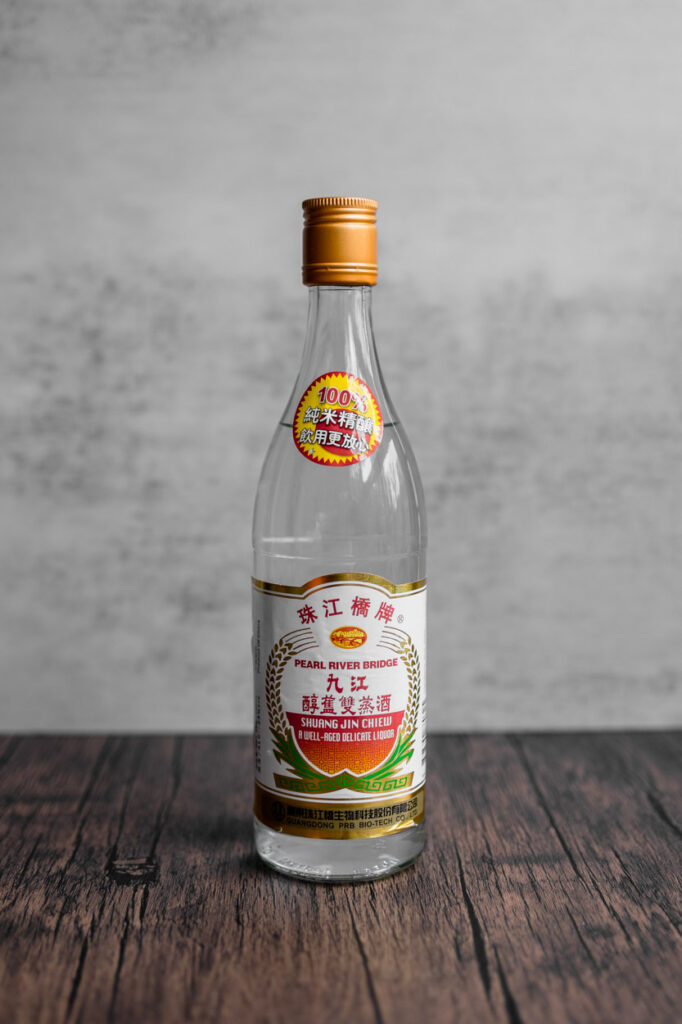



How long should you infuse the liquors?
Alcohol with orange infusion can be infused for up to a week. It will taste better the longer it is infused! If you’re not sure, open the jar after 24-48 hours and smell it. Typically, if the infusion smells very good, it’s good to go. Then let it infuse for another day or two and check again. A general rule of thumb is 3-5 days for most infusions. Don’t worry – even if you use fresh fruit, nothing will go bad. Because alcohol prevents mould from growing on the fruit, it can be stored for a long time even after straining.
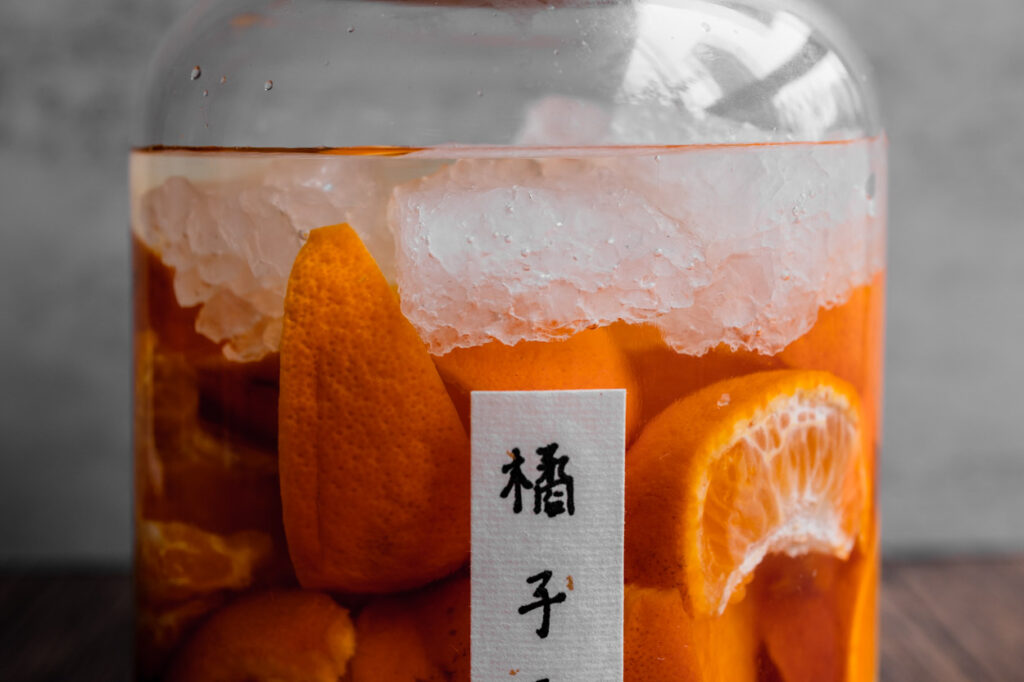
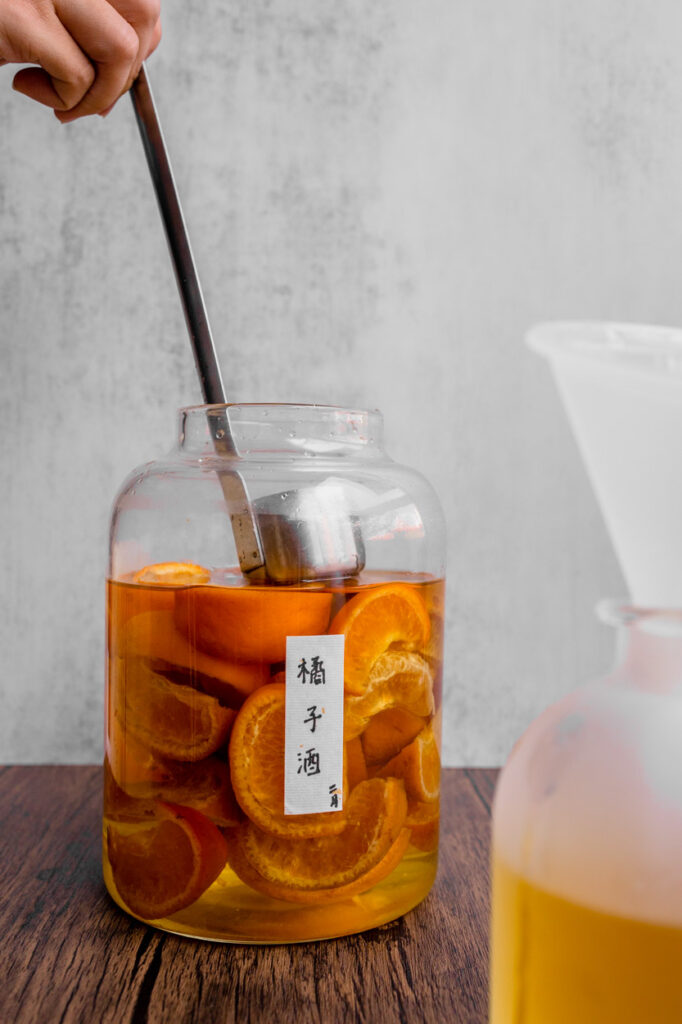

The white liquors turn orange after the long process of infusing. You could enjoy them on the rock like our father did or make them into tasty cocktails for your summer party. The possibilities are endless – share with us your version! Take a photo of yours, send us an email, tag us on Instagram, tweet us, anything. We love to see yours!
xoxo, Joe
A Beginner’s Guide to make Infused Liquors at Home
Ingredients
5 mandarin, washed and sliced
200g of rock sugar
600ml of Shuang Jin Chiew/ Vodka
Methods
- Wash and slice orange. Add to a clean glass jar with rock sugar top with vodka and seal with an airtight lid.
- Store in a cool, dark place for at least 3 days, but up to a week. Strain into a measuring cup or glass bowl through a fine mesh sieve and discard the orange. You may need to strain a few times or use a cheesecloth to remove all sediment. Seal in a clean jar and store in the pantry.






No Comments